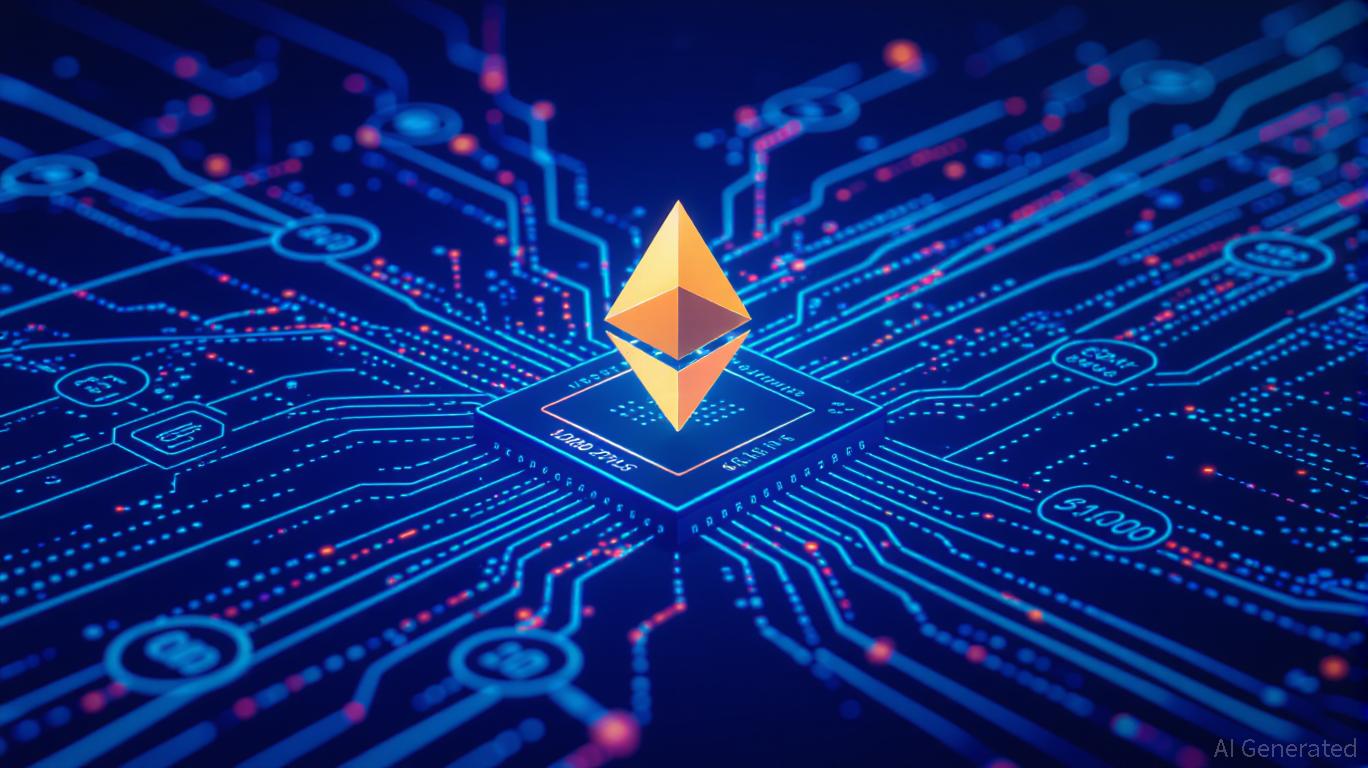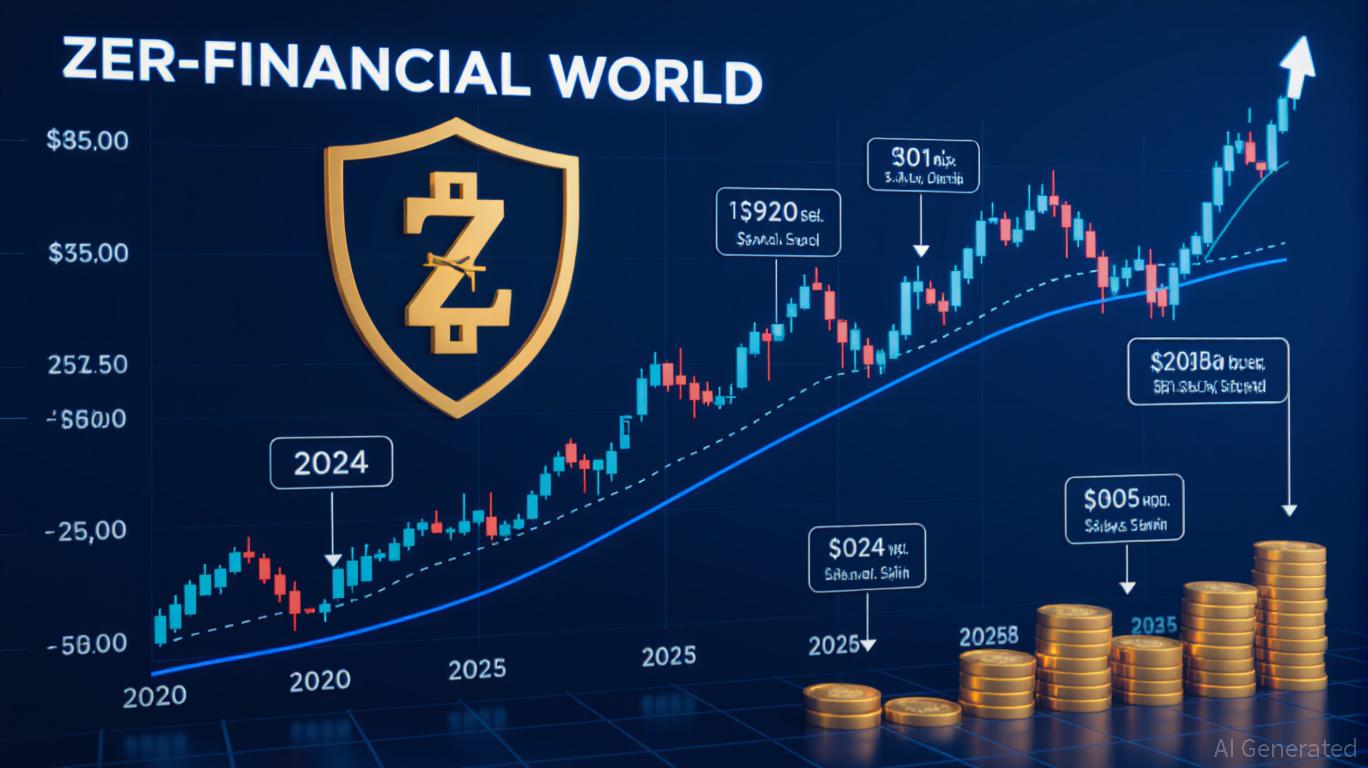U.S. imposes sanctions on cryptocurrency network to cut off funding for North Korea's nuclear program
- U.S. Treasury sanctions 8 North Koreans and 2 banks for laundering $3B+ in stolen crypto to fund nuclear programs. - Targets include hackers using AI, malware, and Chinese intermediaries to bypass sanctions via First/Ryujong Credit Banks. - Measures aim to disrupt Pyongyang's cybercrime ecosystem by penalizing third-party enablers like KMCTC's IT worker networks. - Despite actions, China/Russia oppose stricter sanctions, and UN consensus on coal/iron smuggling remains elusive.
The U.S. Treasury Department has announced sanctions against eight North Korean nationals and two financial entities, accusing them of laundering more than $3 billion in stolen cryptocurrency to support Pyongyang’s nuclear ambitions, according to an
This action follows a 138-page document outlining North Korea’s systematic use of intermediaries in China, Russia, and other countries to mask illegal money flows, according to the AP. Treasury Under Secretary John K. Hurley stressed that the regime’s cyber operations “steal and launder money to fund the nuclear weapons program,” a method that has surpassed other countries in both scale and complexity, CoinDesk reported. Among those targeted are bankers Jang Kuk Chol and Ho Jong Son, who allegedly managed crypto transactions for the sanctioned First Credit Bank, which has been connected to ransomware incidents and sanctions evasion, CoinDesk reported.

The Treasury also blacklisted Korea Mangyongdae Computer Technology Company (KMCTC), which runs IT worker teams in China, for its role in laundering cryptocurrency through Chinese nationals acting as financial stand-ins, CoinDesk reported. KMCTC’s leader, U Yong Su, is among those sanctioned for helping the regime exploit the global financial system. The department cautioned that North Korean hackers are increasingly turning to AI to automate cyberattacks, including phishing and ransomware, to infiltrate crypto exchanges and companies, CoinDesk added.
These sanctions are part of a wider U.S. effort to cut off North Korea’s funding sources as nuclear talks remain stalled. Last month, blockchain analytics company Elliptic revealed that North Korean hackers stole $2 billion in cryptocurrency in 2025 alone, underscoring the regime’s growing dependence on digital assets. The Treasury’s measures are intended to “sever illicit revenue streams” by punishing those who do business with sanctioned groups, a strategy meant to discourage involvement in North Korea’s cybercrime networks, according to
However, obstacles persist. China and Russia, North Korea’s main allies, have repeatedly resisted tougher sanctions, instead calling for relaxed measures to encourage renewed talks, an
The new sanctions highlight the Treasury’s emphasis on targeting financial networks over diplomatic engagement, a shift made clear by a 2022 warning to U.S. companies about hiring North Korean IT workers posing as remote staff, the AP noted. With North Korea’s cyber operations expected to ramp up, the U.S. has indicated plans to intensify its response, focusing not just on the perpetrators but also on the international systems that enable their activities.
Disclaimer: The content of this article solely reflects the author's opinion and does not represent the platform in any capacity. This article is not intended to serve as a reference for making investment decisions.
You may also like
Bitcoin News Update: Bitcoin’s Drop to $100k Highlights Short-Term Anxiety Versus Enduring Confidence from Institutions
- Bitcoin fell below $100,000 in Nov 2025 amid geopolitical tensions and profit-taking, wiping $1.3B in crypto liquidations. - Technical indicators showed bearish momentum, with whales selling 38.4k BTC while retail traders bought 415 BTC. - Michael Saylor predicted $150k BTC by year-end, citing institutional adoption, as investors shifted to altcoins like AlphaPepe. - Miners like MARA doubled Bitcoin reserves in Q3, but stocks dipped amid macroeconomic uncertainties and volatile price swings.

Vitalik Buterin Backs ZKsync: Driving Layer 2 Expansion and Unlocking Investment Opportunities
- Vitalik Buterin's endorsement of ZKsync's Atlas upgrade validates its technical innovation, boosting institutional interest and investor confidence. - The upgrade enables direct Ethereum liquidity access, achieving 15,000+ TPS and near-zero fees, positioning ZKsync as a key Layer 2 infrastructure. - Buterin's backing triggered a 120% token price surge and $600M market cap, highlighting its potential to dominate Ethereum's scaling solutions. - ZKsync's tokenomics overhaul prioritizes buybacks and staking

Zuckerberg: *The Social Network* Captured My Mannerisms, But Not My Life
- Mark Zuckerberg praised *The Social Network* for accurately replicating his Harvard-era casual style, including owned T-shirts and fleece jackets. - He criticized the film's narrative, calling its portrayal of his Facebook motivations and fabricated romantic subplot "completely wrong." - Zuckerberg highlighted Hollywood's struggle to grasp tech entrepreneurship's intrinsic appeal, emphasizing real-world innovation vs. dramatization. - Despite narrative disagreements, he bought the film's iconic "Ardsley

Zcash Halving Scheduled for November 2025: Triggering Market Fluctuations and Attracting Speculative Investments
- Zcash's November 2025 halving will cut miner rewards by 50%, mirroring Bitcoin's deflationary model and tightening supply. - Historical data shows post-halving price surges, with Zcash's price rising 472% since October 2025 amid $137M institutional inflows. - Privacy-centric features (30% shielded supply) and speculative demand drive volatility, but regulatory risks and competition pose challenges. - Market dynamics highlight tension between scarcity-driven optimism and macroeconomic uncertainties affect
